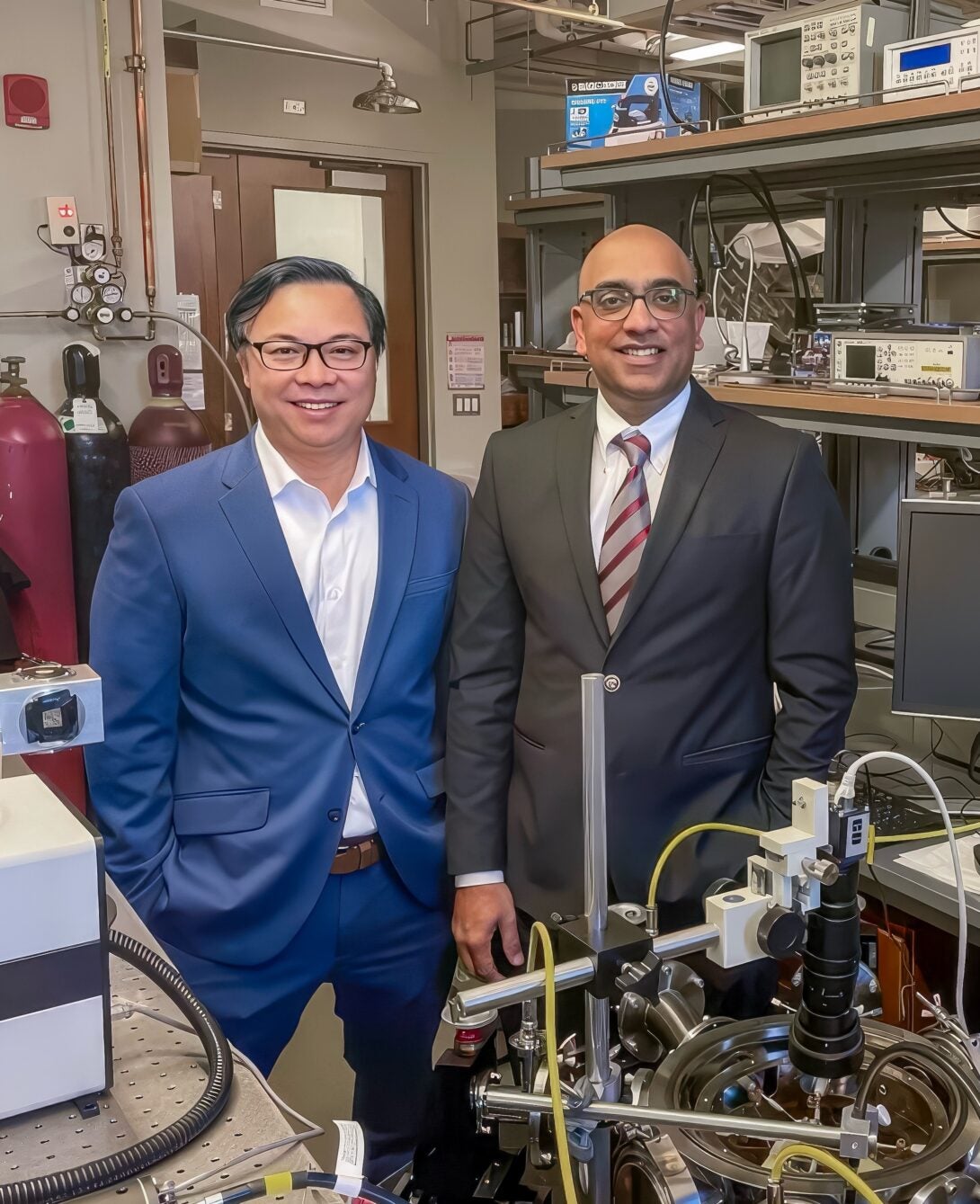Several grants will help Ngo develop better electric vehicle batteries
block Heading link

According to the U.S. Department of Transportation, “the rapid growth in electric vehicles (EVs) is part of a fundamental shift in transportation that promises substantial benefits to individuals, businesses, communities, and the nation.”
In addition to EVs’ environmental pollution reduction potential, most are cheaper to operate as they have fewer maintenance costs and are typically quieter than gas-powered vehicles.
Most EVs can travel at least 200 miles on a single charge, but Chemical Engineering Associate Professor Anh Ngo and his team hope to extend EV battery life.
Ngo explained lower energy density causes batteries, such as those in EVs, to be larger and have less energy capacity, unlike those with a higher energy density.
Along with other researchers from a variety of institutions, Ngo was recently awarded a series of grants using advanced simulations, such as machine learning and artificial intelligence, and atomistic modeling to understand and optimize EV power systems.
Each grant is focused on energy materials, batteries, sensors, or nanomaterials and is from the U.S. Department of Energy Office of Energy Efficiency and Renewable Energy, Basic Energy Sciences program, and the Office of Electricity, the National Science Foundation, or industry. Altogether, Ngo and his team’s multi-million-dollar grants work together to develop renewable energy and devices for EVs and nanomaterials.
Through his research, Ngo and his team are also working to develop novel two-dimensional rare-earth-based supramolecular structures, such as nano-graphene and nanoribbon structures, for emission applications. Investigating these novel supramolecular structures will provide a fundamental understanding of atomic-level interactions between rare-earth ions and their environment. This research will help the team to better control these interactions to tailor the properties of rare-earths ions for specific energy behaviors, including emission and energy up-conversion.
Ngo’s research uses low-dimensional carbon materials, which have various potential applications, including the development of longer-lasting batteries. According to previous research in Energy Materials, low-dimensional carbon materials, such as graphene, can enhance the electrochemical performance of batteries.
His computational program at UIC is world-renowned and has grown exponentially over the last few years, with papers from his research group publishing in highly regarded journals such as Nature, Science, Nature Energy, Nature Chemistry, Nature Materials, and Nature Nanotechnology.
Ngo is also working with other researchers from various universities and labs, including Argonne National Laboratory, Ohio University, Pennsylvania State University, Northern Illinois University, University of Michigan, Purdue University, University of Texas Austin, Pacific Northwest National Laboratory, University of Nebraska, and University of Maryland.